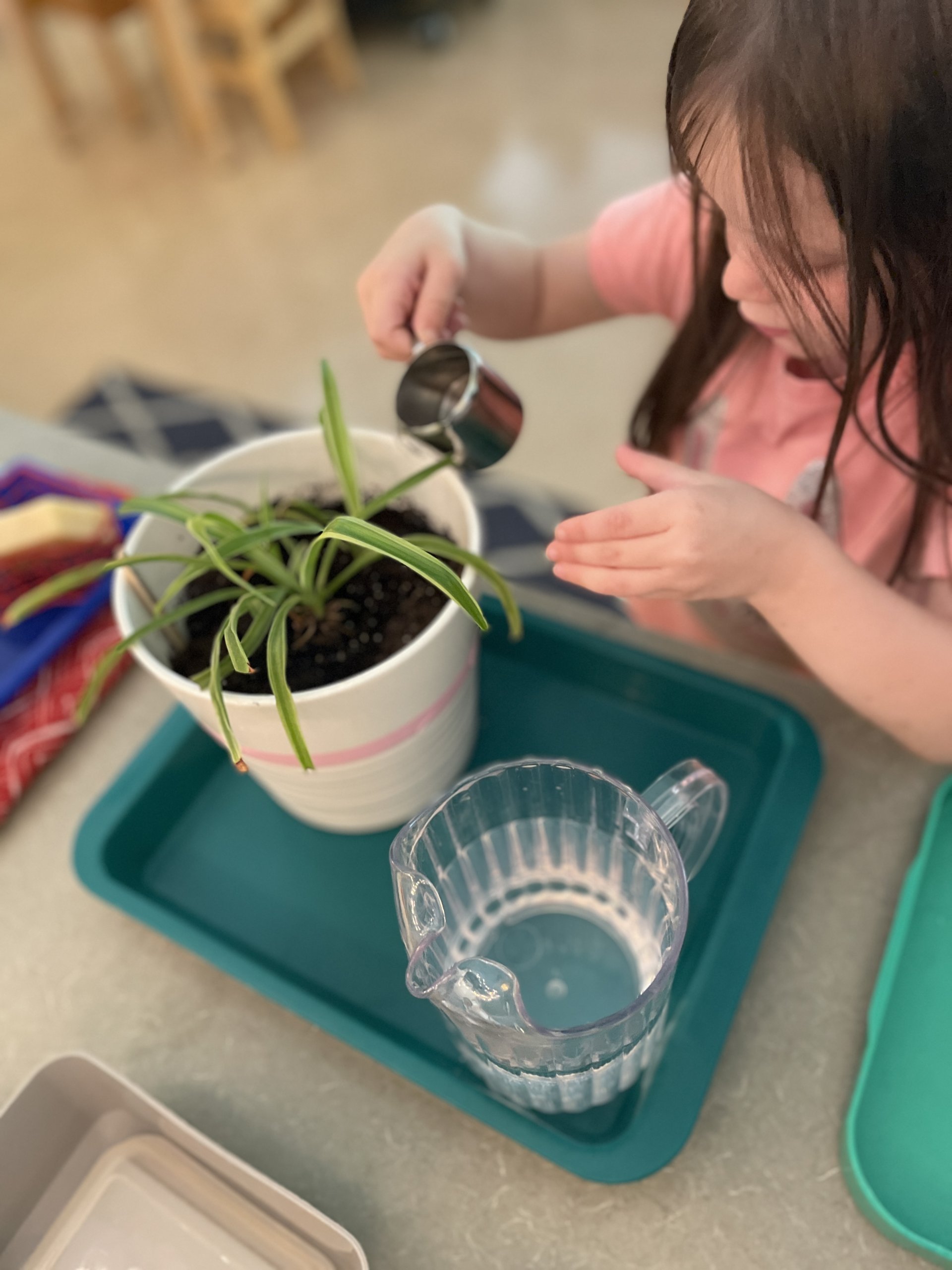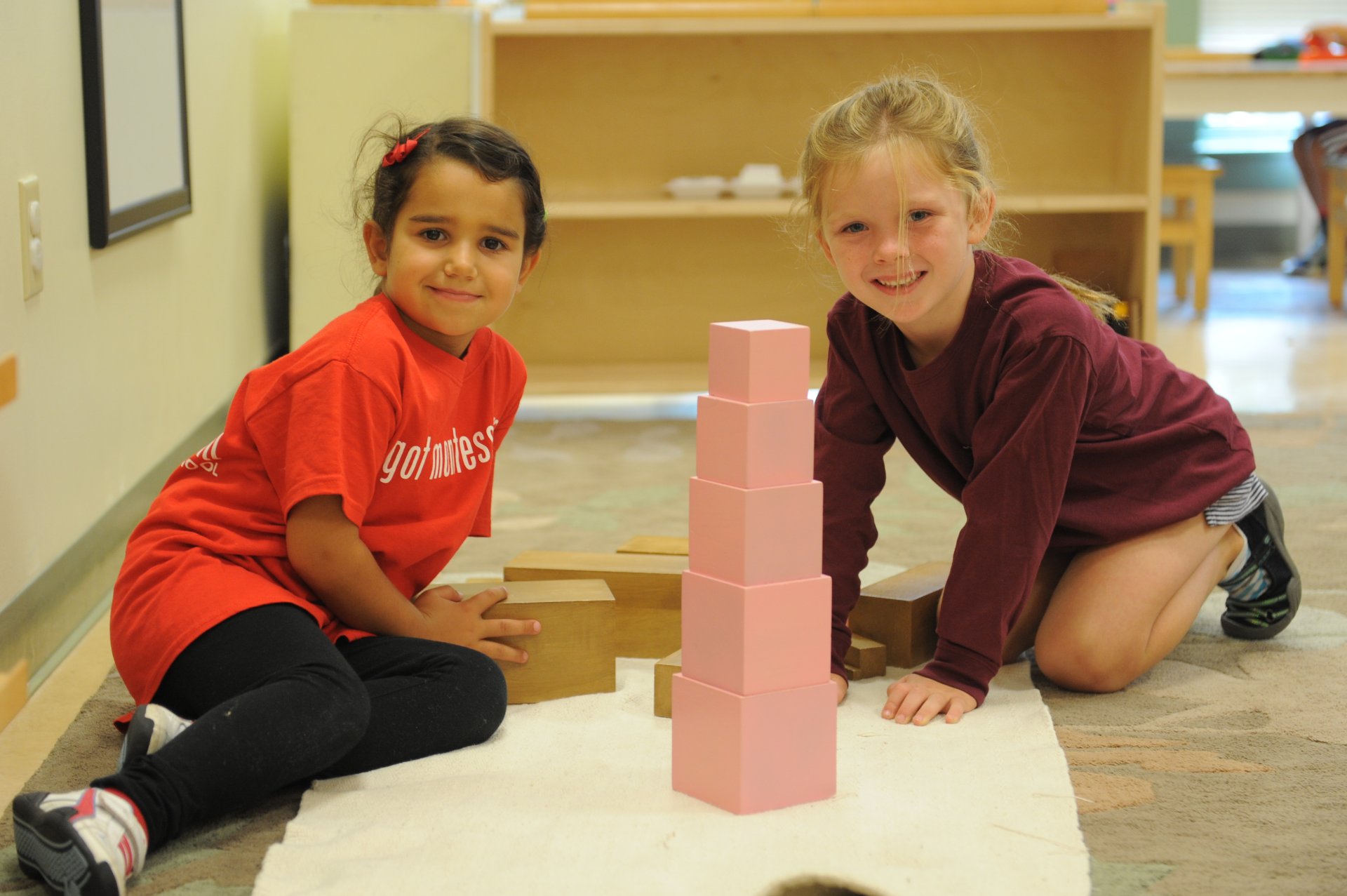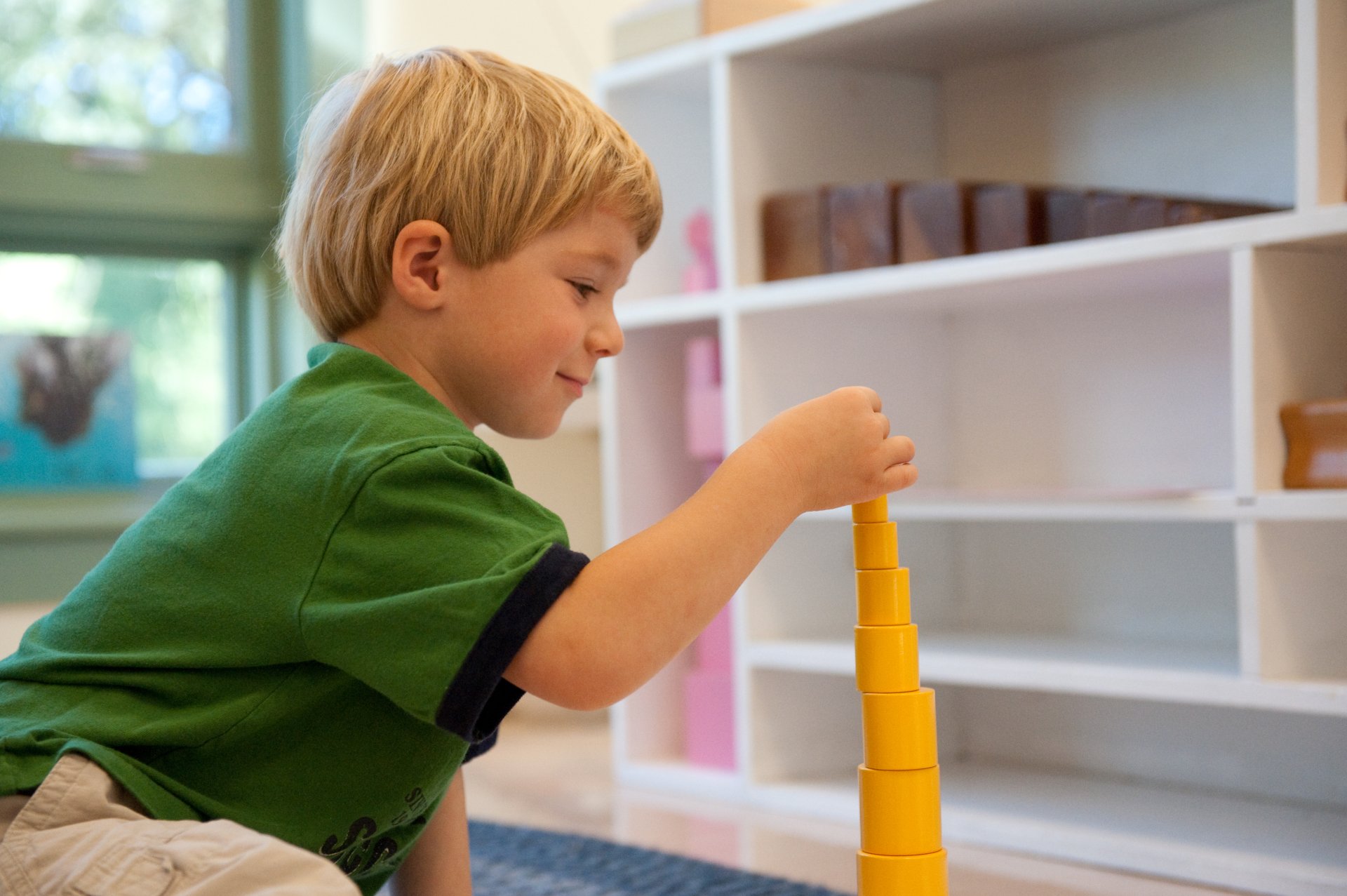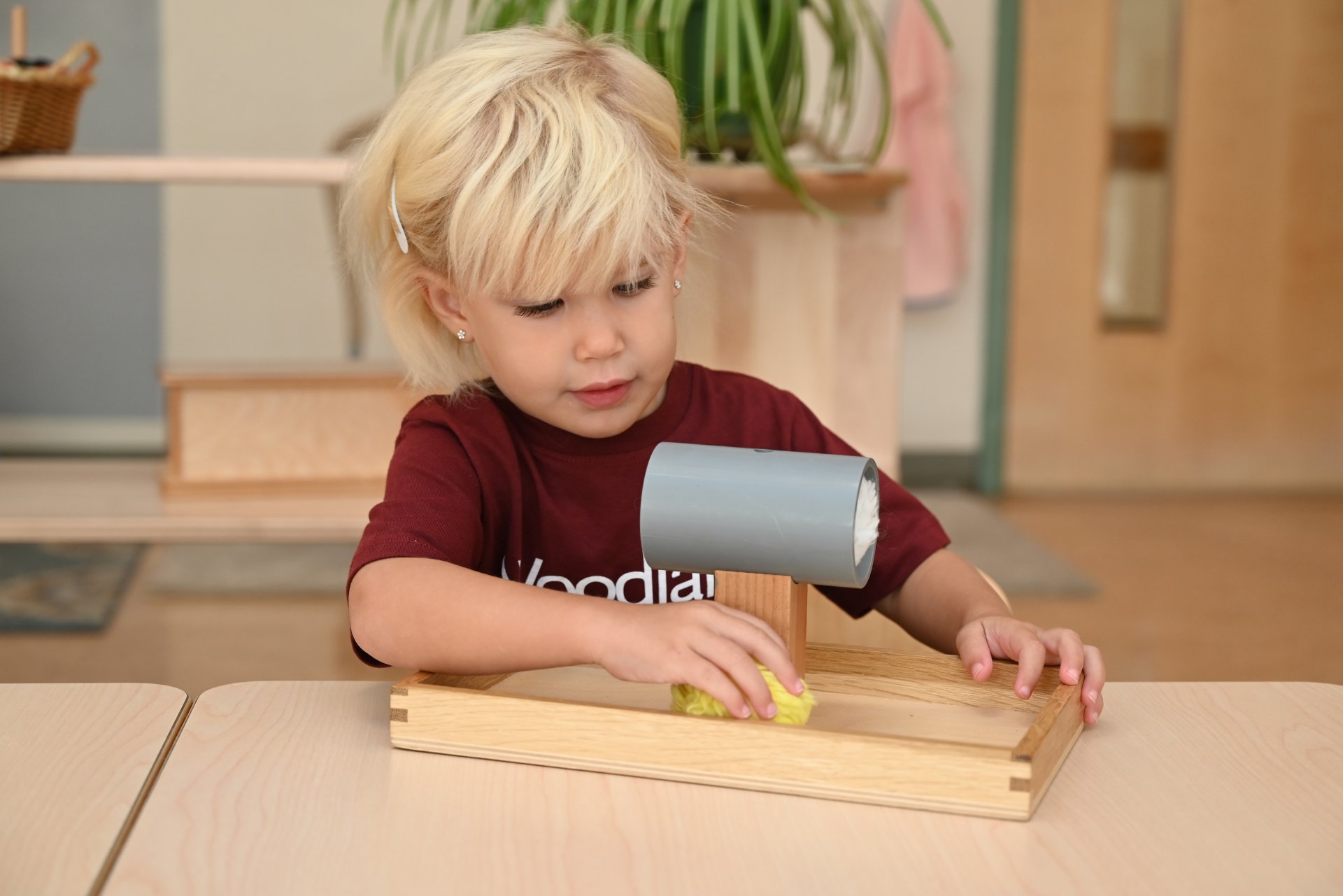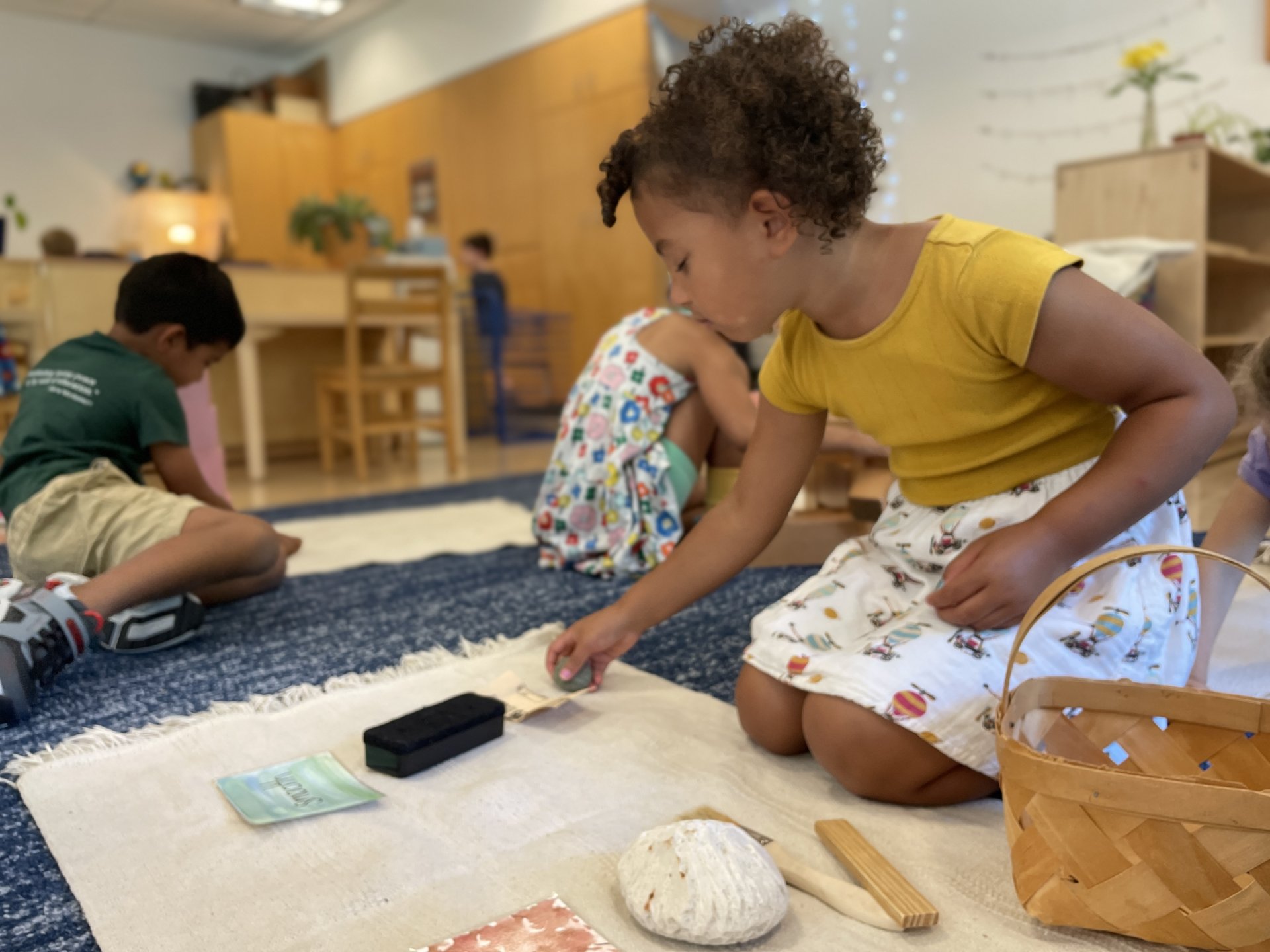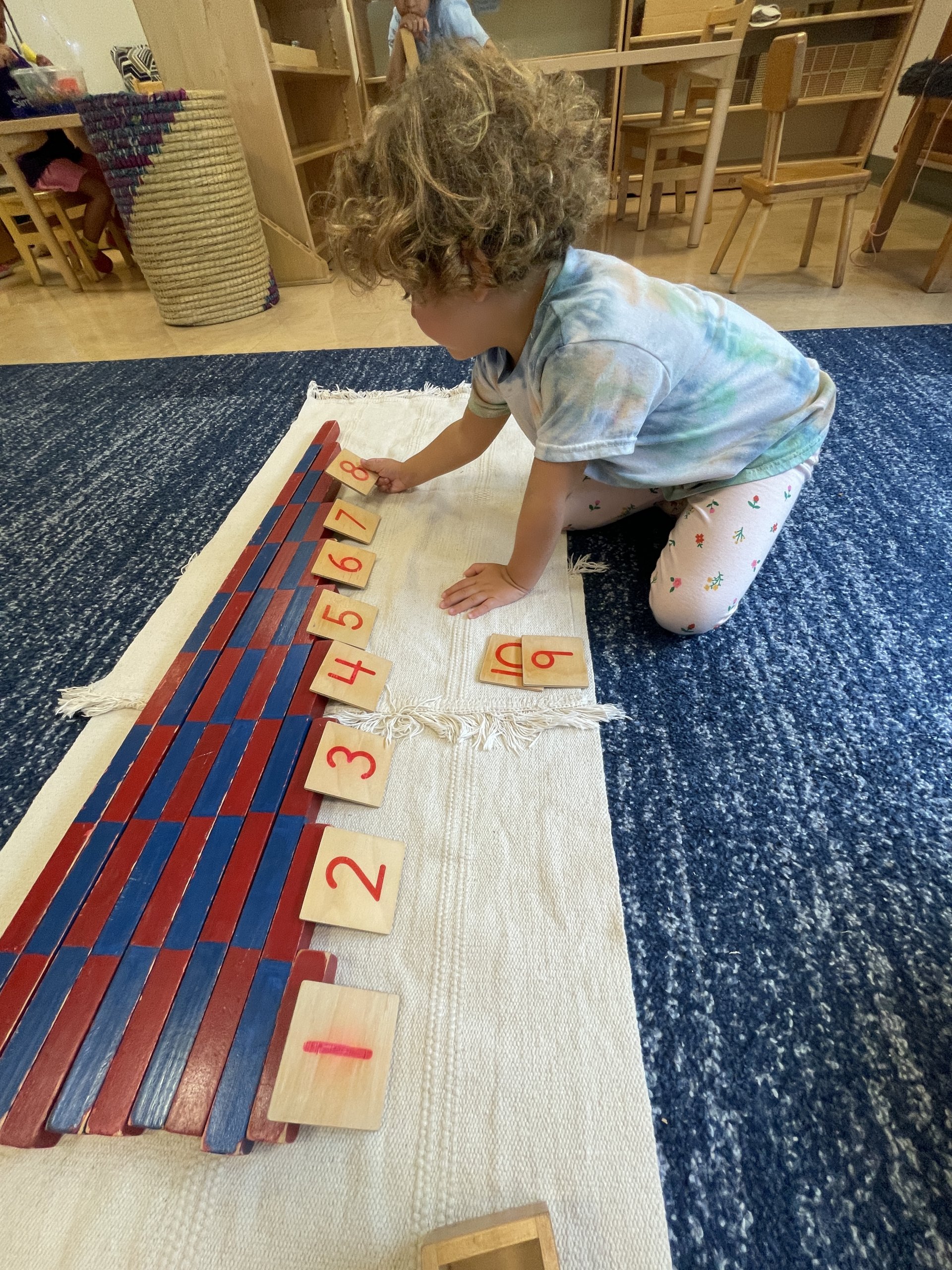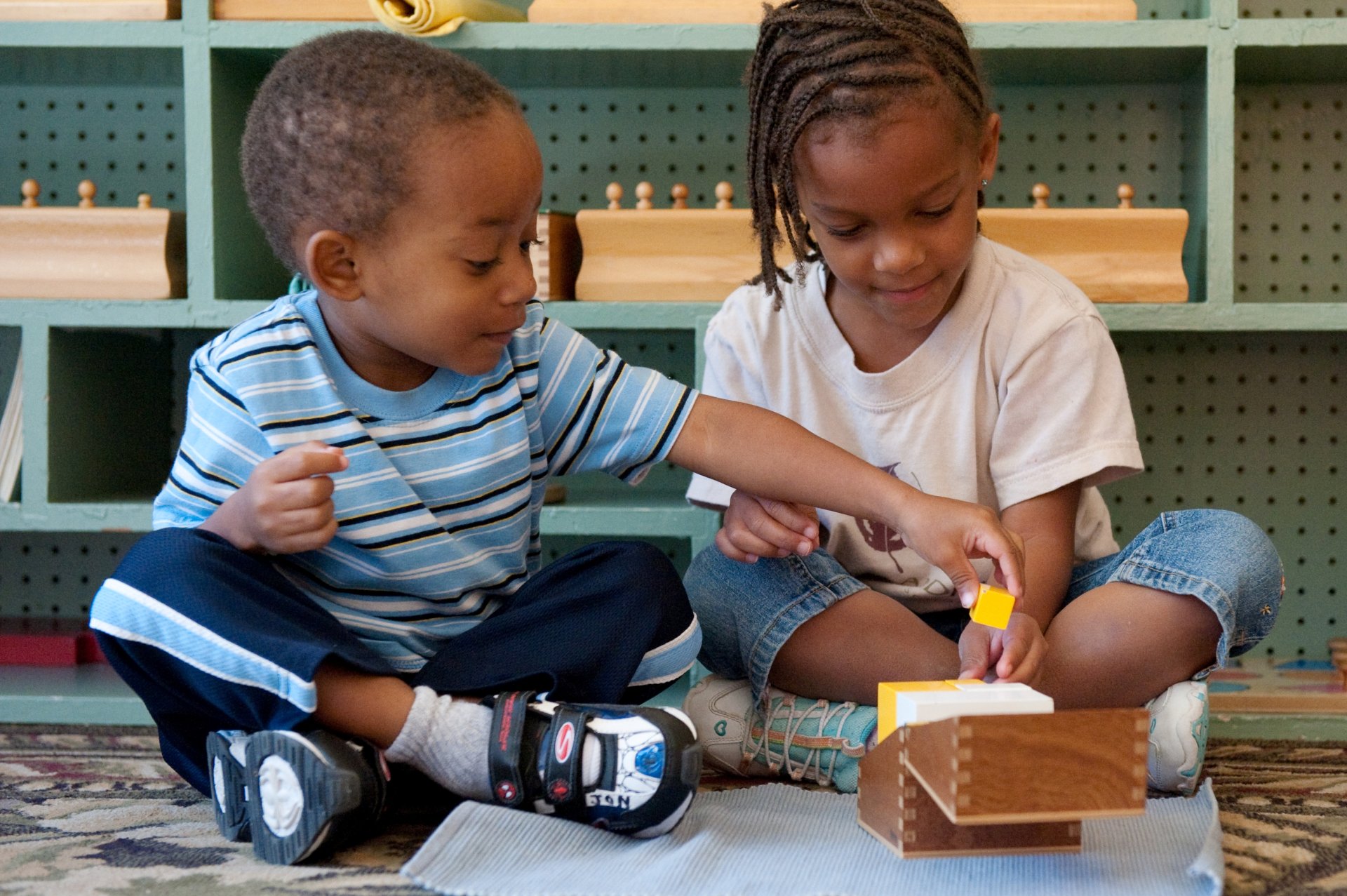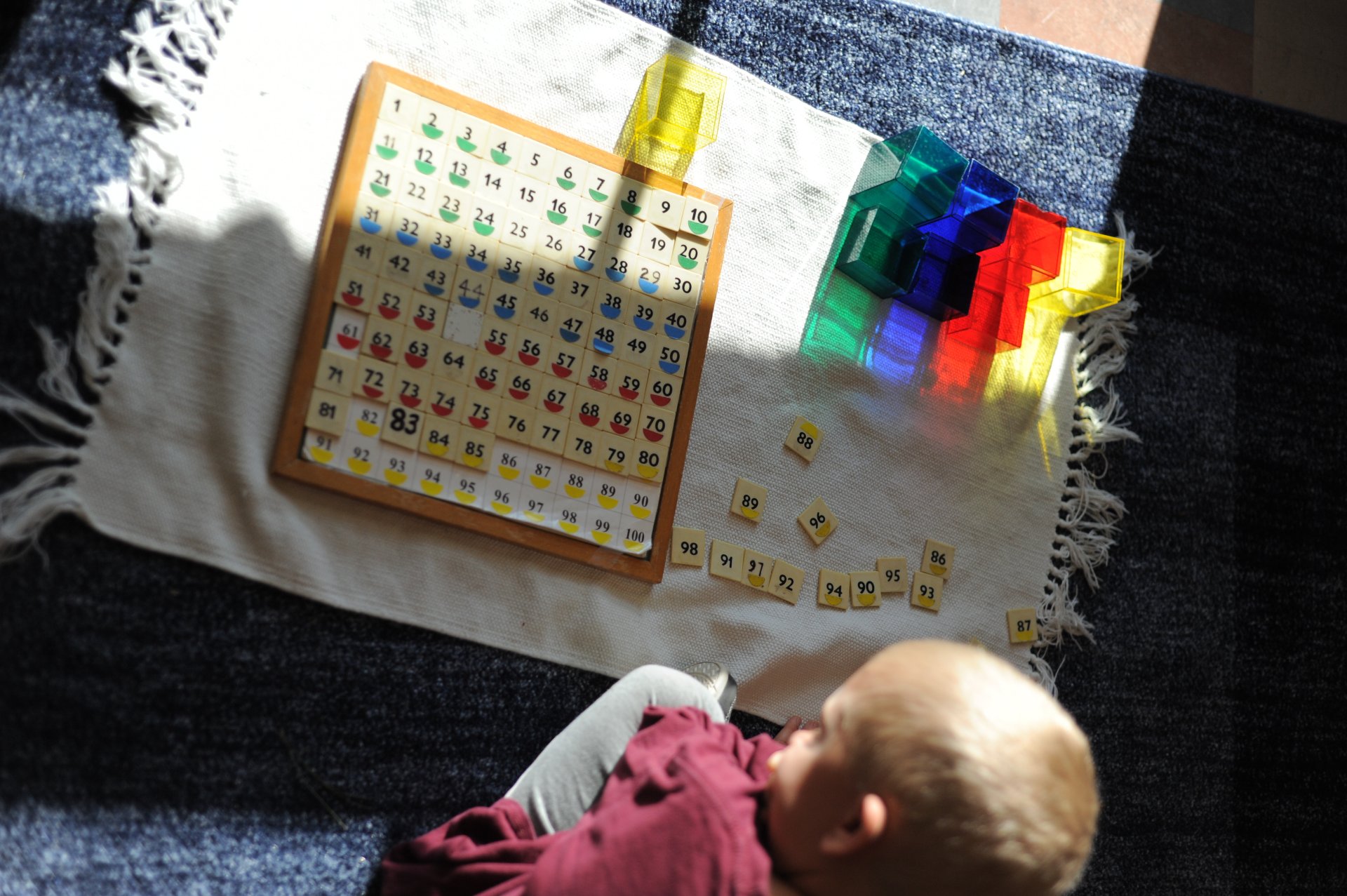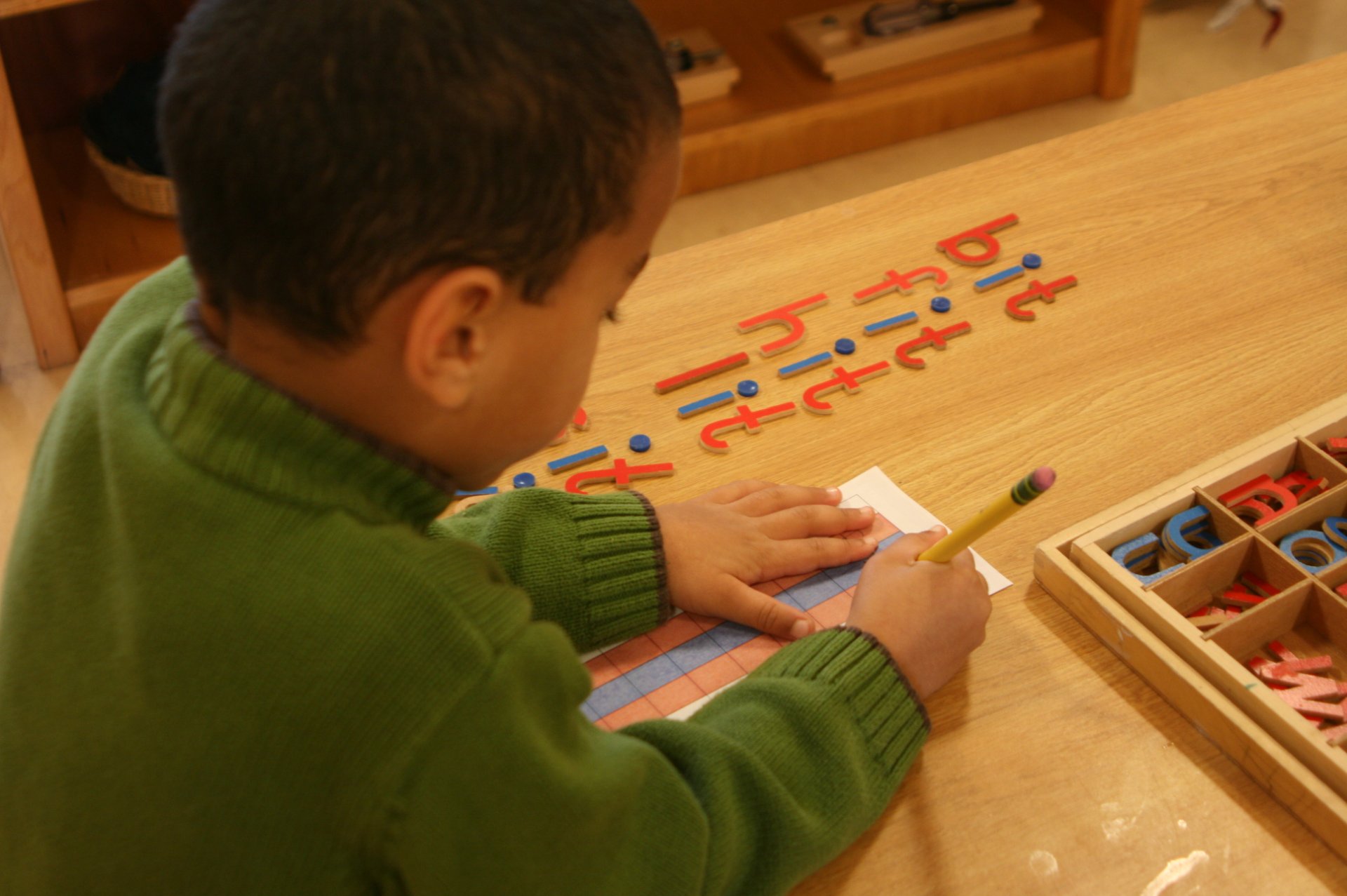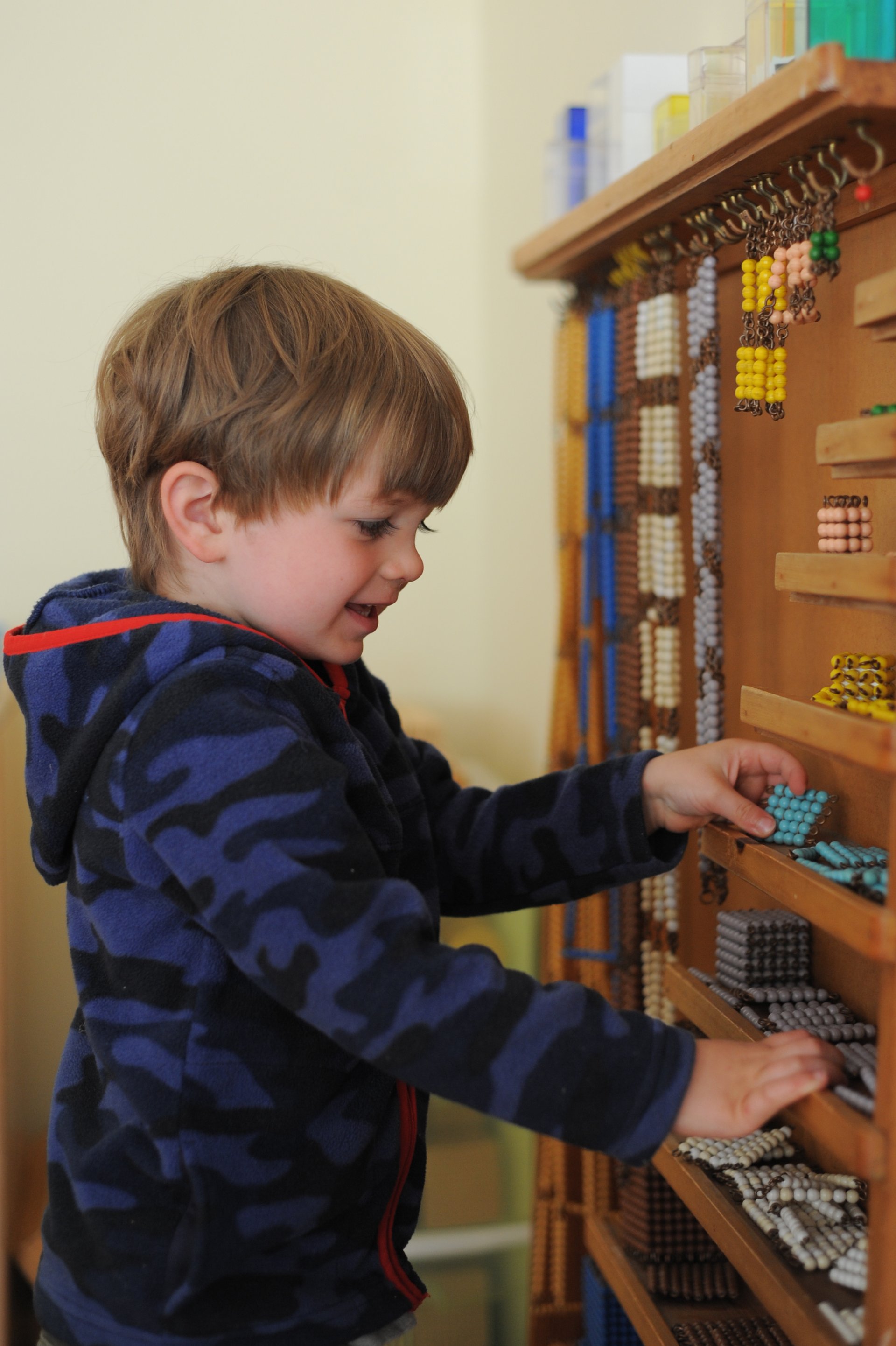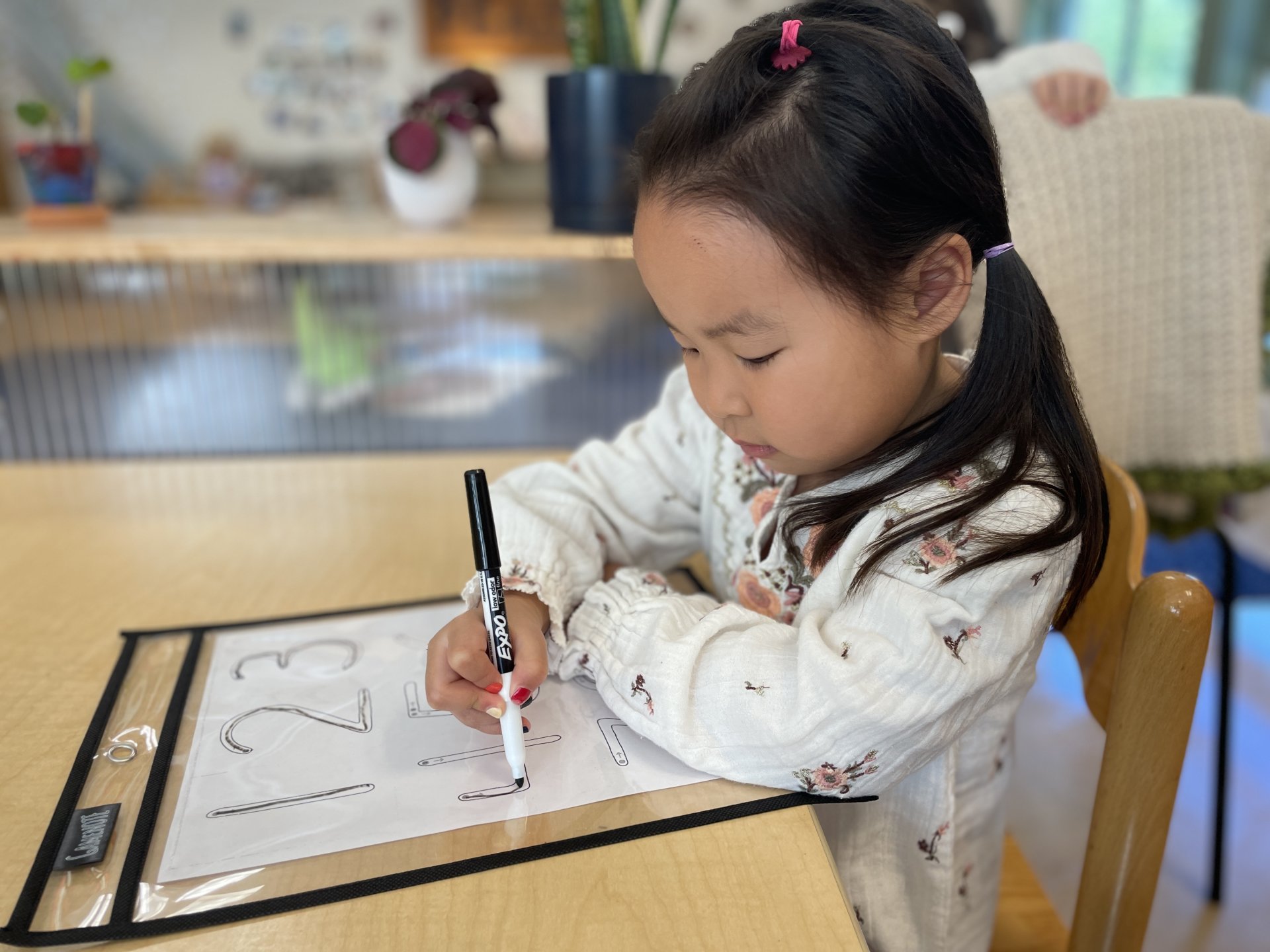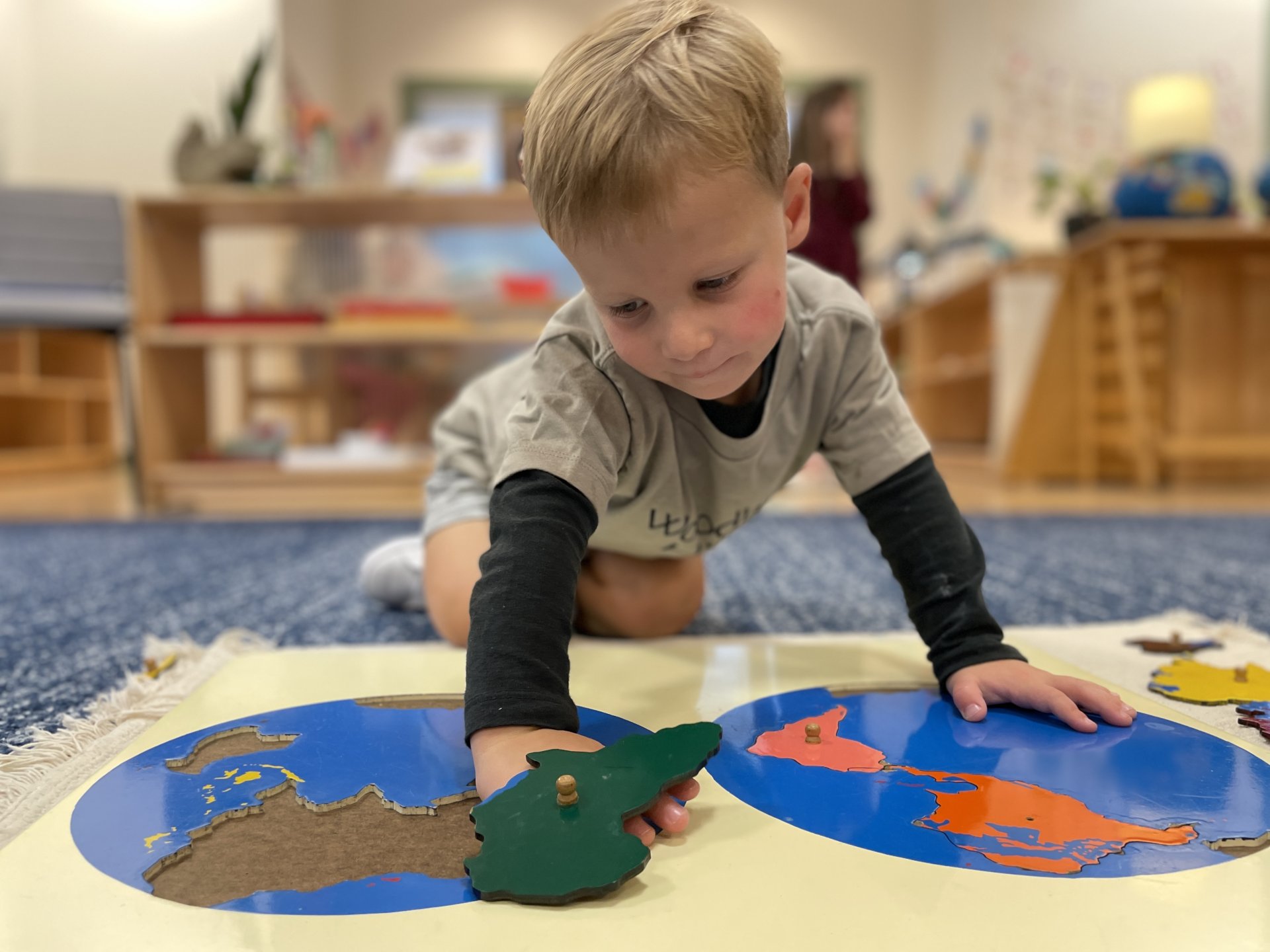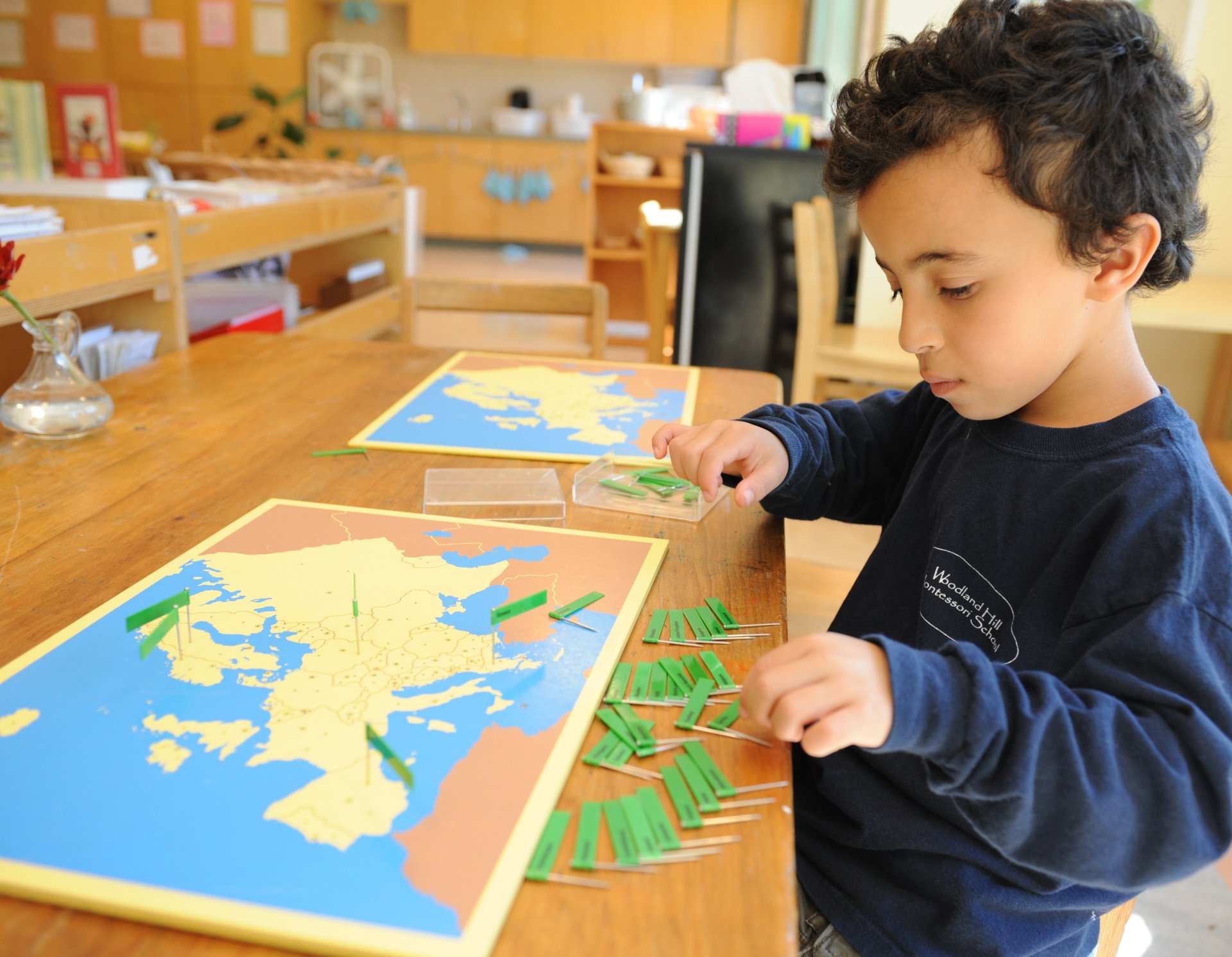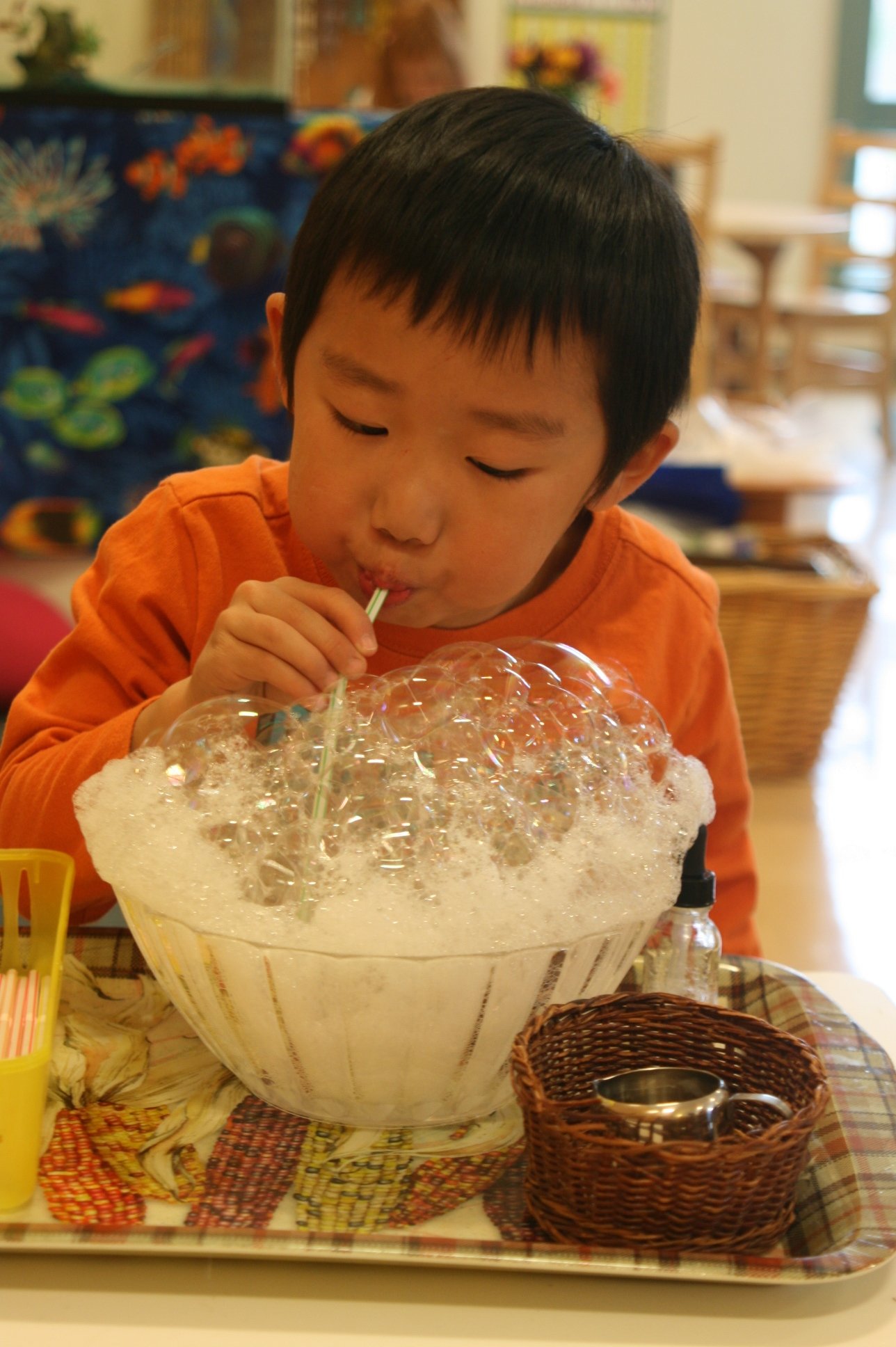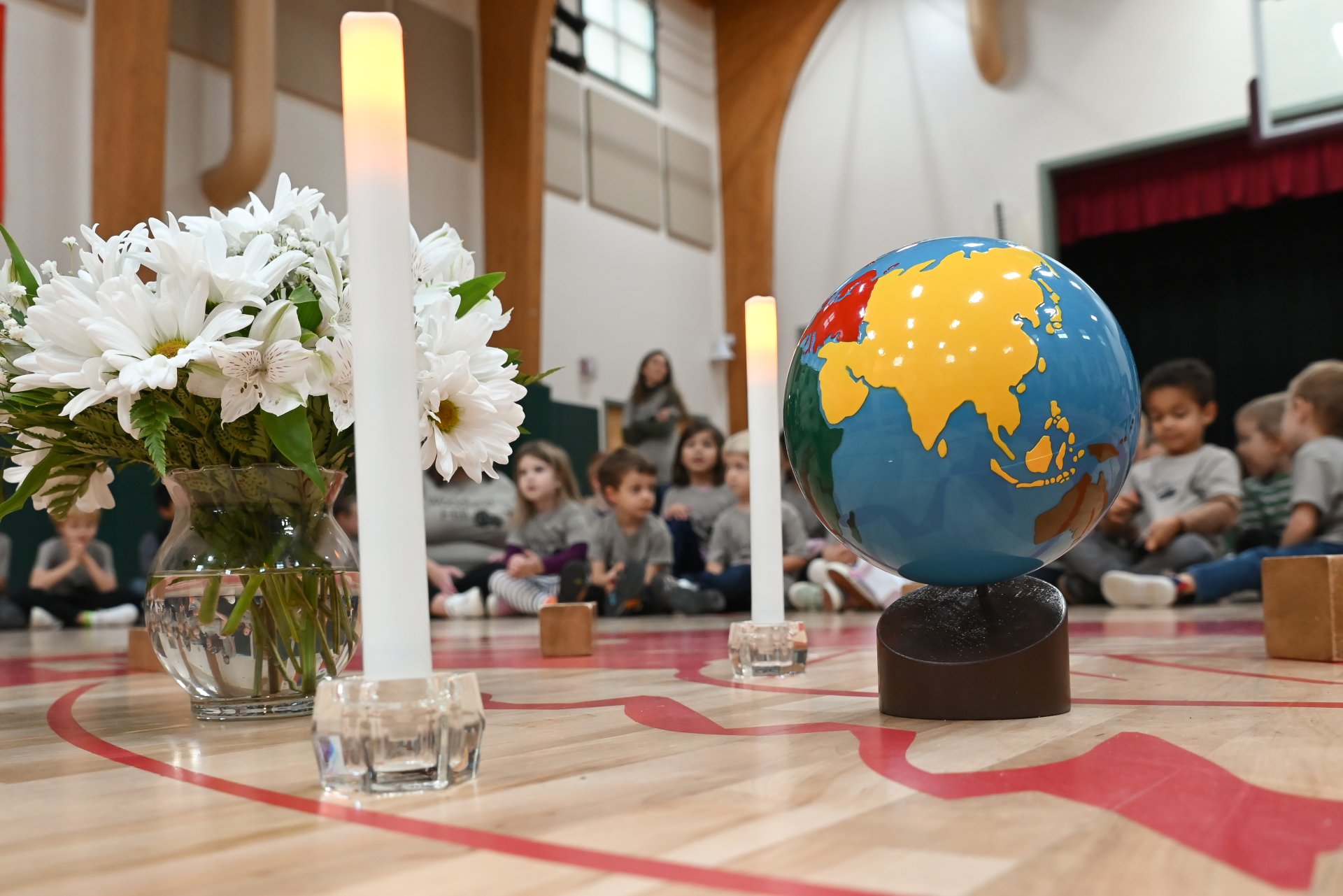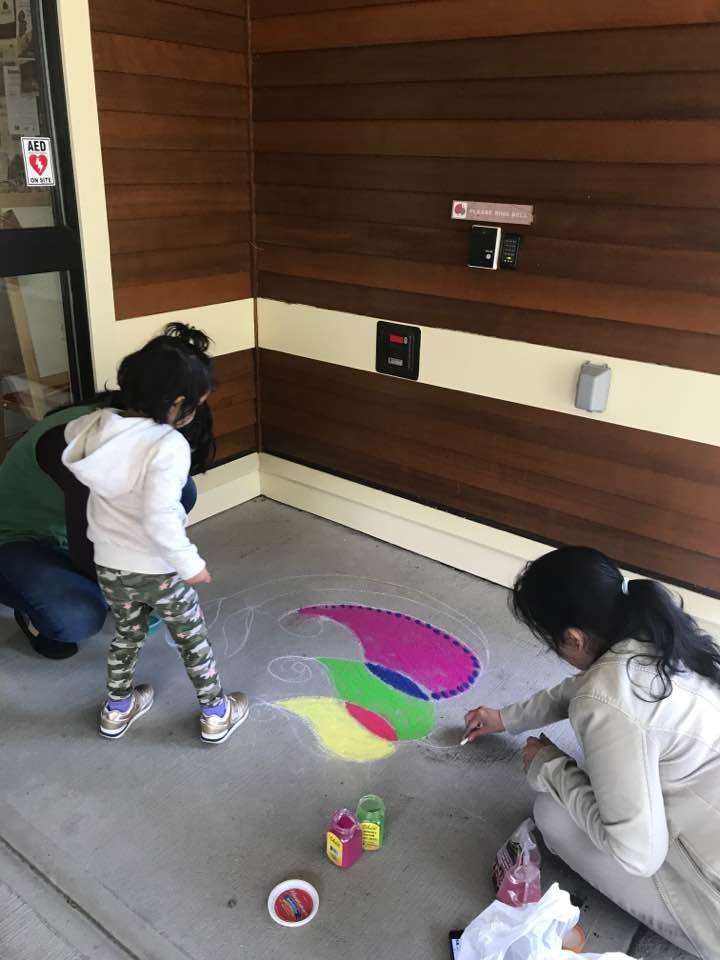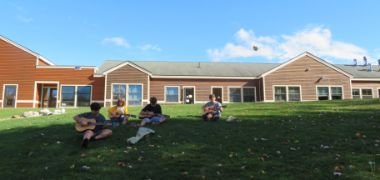Three to six year olds
Profound respect for each child characterizes the 3- to 6-year-old Primary program. This program fosters growth in independence and problem solving; the development of order, concentration, and coordination; the nurturing of oral communication skills; and the stimulation of the child’s joy in discovery and learning.
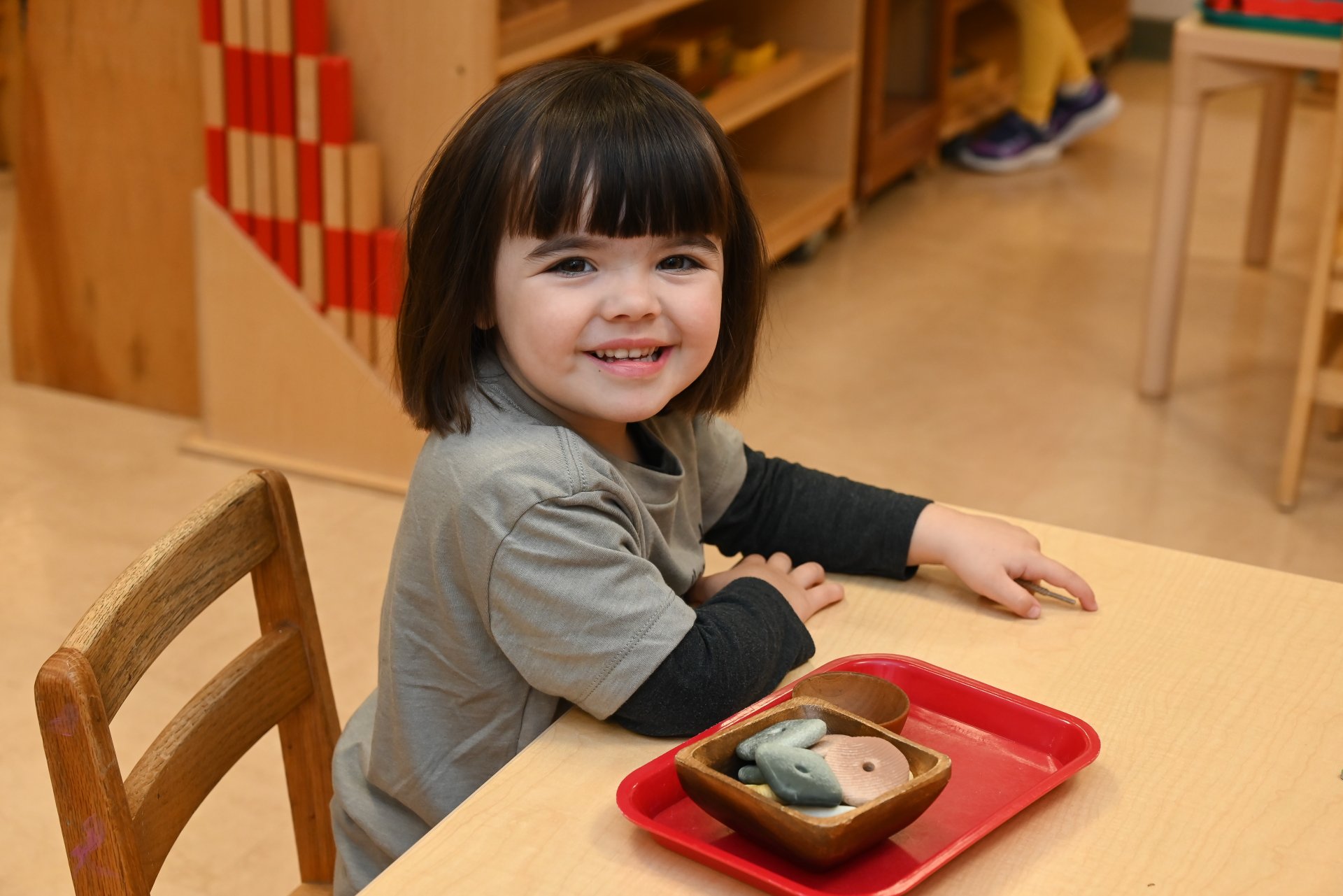
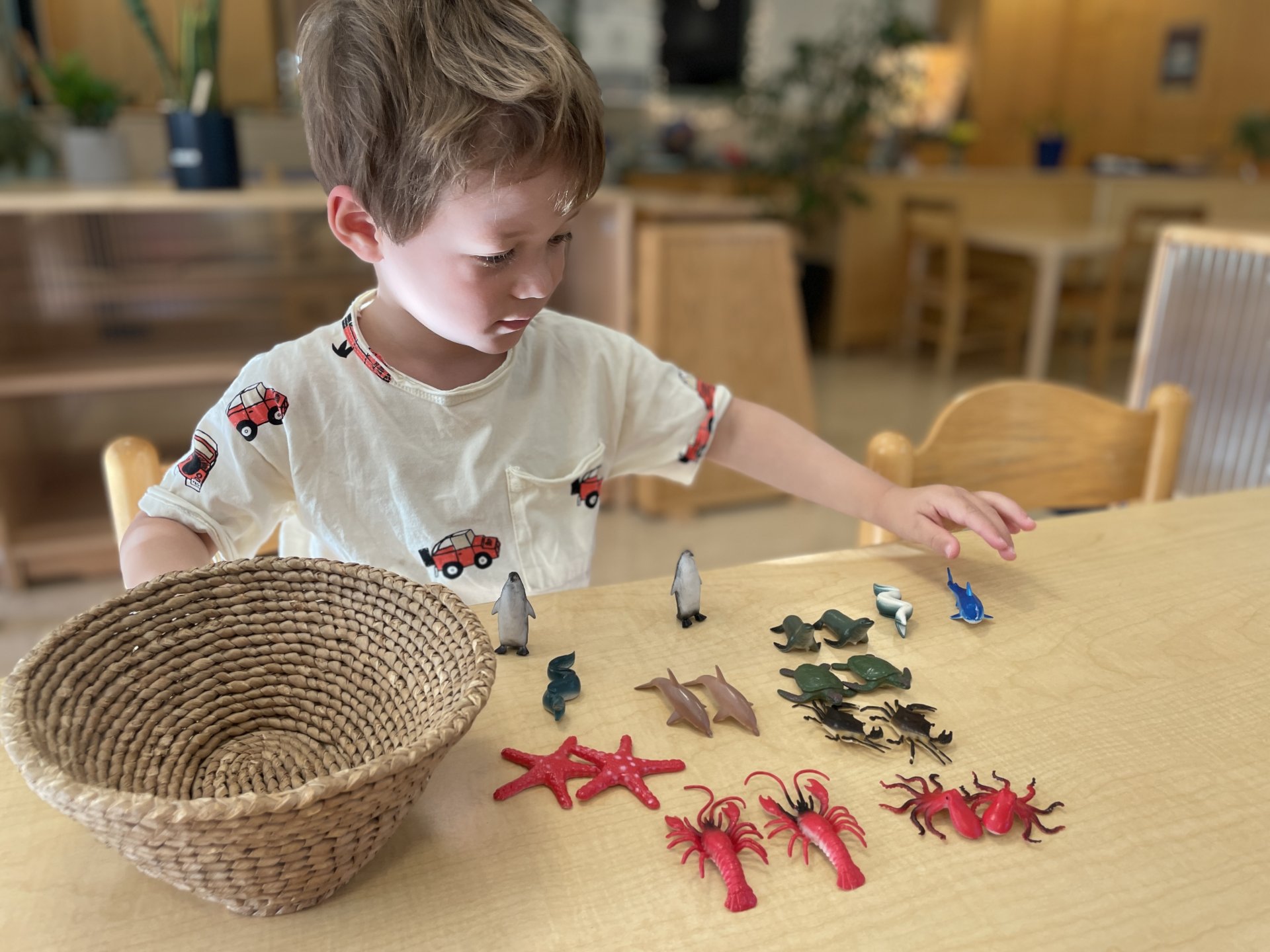
The Absorbent Mind
During the first plane of development, children experience what is known as the absorbent mind. This means that they have a natural ability to absorb and assimilate information from their environment. Through listening, observing, and imitating, they eagerly soak up everything they encounter. This stage is crucial for their overall development, as it forms the foundation for their growth and understanding of the world around them. Teachers serve as guides, fostering a nurturing and inclusive environment where everyone's contributions are valued. In a primary classroom, children learn not only academic skills but also important life skills that will help them become active and engaged members of their future communities.
Practical Life & Sensorial
Practical Life Children learn daily-life skills, such as how to get dressed, prepare snacks, set the table, and care for plants and animals. They also learn appropriate social interactions, such as saying please and thank-you, being kind and helpful, listening without interrupting, and resolving conflicts peacefully. In addition to teaching specific skills, Practical Life activities promote independence, and fine- and gross-motor coordination.
Sensorial Children refine skills in perceiving the world through their different senses, and learn how to describe and name their experiences—for example, rough and smooth, perceived through touch. Sensorial learning helps children classify their surroundings and create order. It lays the foundation for learning by developing the ability to classify, sort, and discriminate—skills necessary in math, geometry, and language.
Math & Language
Math Through hands-on activities, children learn to identify numerals and match them to their quantity, understand place-value and the base-10 system, and practice addition, subtraction, multiplication, and division. They also explore patterns in the numbering system. With an exploratory approach, children do more than just memorize math facts; they gain a firm understanding of the meaning behind them.
Language Activities throughout the Early Childhood classroom teach language, help children acquire vocabulary, and develop skills needed for writing and reading. The ability to write, a precursor to reading, is taught first. Using hands-on materials, children learn letter sounds, how to combine sounds to make words, how to build sentences, and how to use a pencil. Once these skills are acquired, children spontaneously learn to read.
Cultural Studies/Cosmic Education
In the cultural area of the curriculum, children are exposed to a wide range of subjects such as history, geography, science, art, and music. Through these lessons, they learn not only about their own community but also about the world at large. By discovering the similarities and differences among people and places, children develop a deeper understanding and appreciation of the diversity of our world. Moreover, this exposure fosters a sense of respect for all living things. It is through this approach that children are able to explore and embrace the richness and complexity of our global society.


